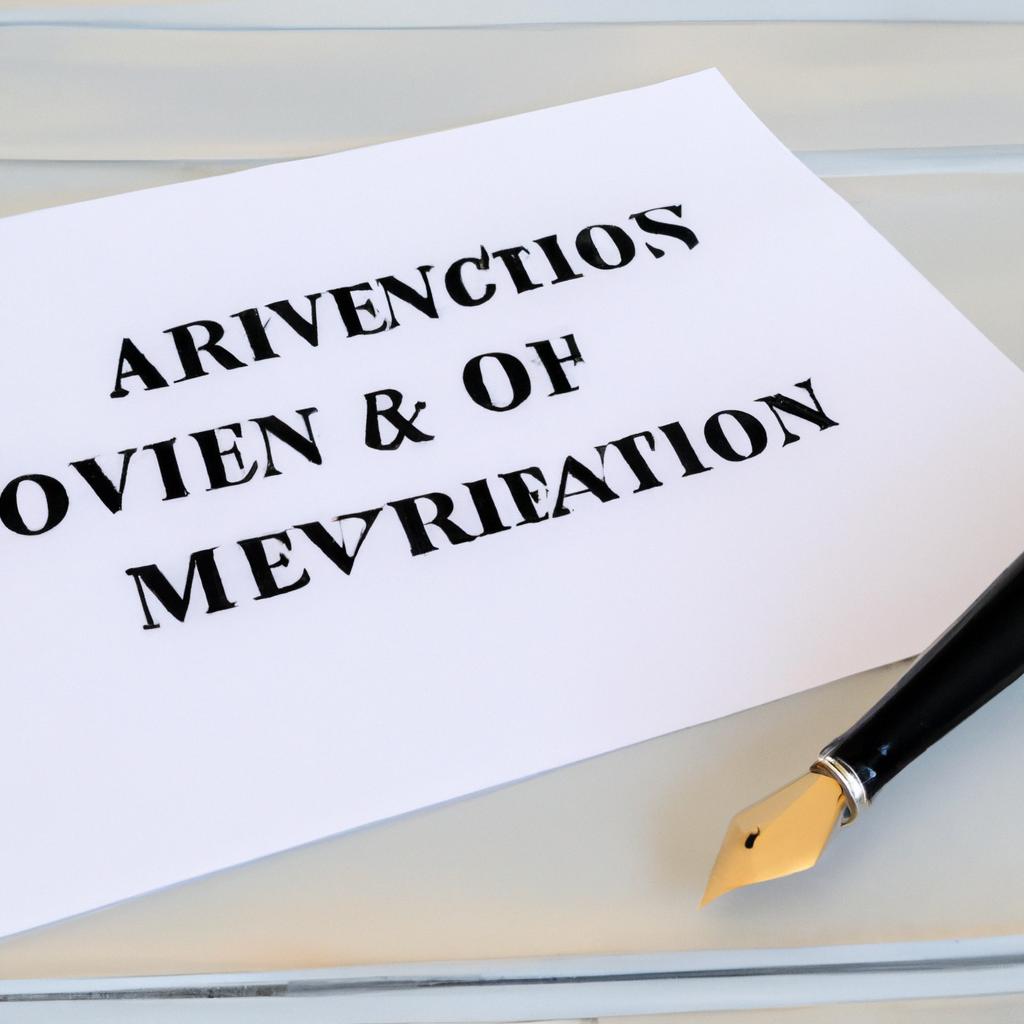In the intricate realm of estate planning and probate, the question often arises: Can a child contest a parent’s will? As experienced practitioners in this field, we at Morgan Legal Group, based in the bustling metropolis of New York City, are well-versed in the complexities of family dynamics and legal intricacies that surround such a delicate issue. Join us as we dive into the nuanced world of Wills, trusts, and the potential for familial discord in the pursuit of justice and fairness in matters of inheritance.
Challenging a Parent’s Will: Understanding the Legal Process
Challenging a parent’s will can be a complex and emotional process that requires a thorough understanding of the legal system. As a child looking to contest a parent’s will, it is essential to be aware of the legal steps involved and the potential consequences. In order to successfully challenge a will, it is crucial to work with an experienced estate planning attorney who specializes in probate and elder law.
When contesting a parent’s will, it is important to keep in mind the following key points:
- Evidence: You will need to provide evidence to support your claim, such as proving that the will was signed under duress or that the parent lacked mental capacity at the time of signing.
- Legal grounds: You must have valid legal grounds for contesting the will, such as undue influence, fraud, or lack of capacity.
- Time limits: There are specific time limits for contesting a will, so it is important to act quickly and seek legal advice as soon as possible.

Factors to Consider When Contesting a Parent’s Will
When contemplating contesting a parent’s will, it’s crucial to consider several key factors that can greatly impact the outcome of the legal process. One of the main considerations is the validity of the will itself. If there are suspicions of coercion, undue influence, or lack of capacity when the will was created, it may be grounds for contesting its authenticity.
Additionally, examining the distribution of assets outlined in the will is essential. If there are discrepancies that seem unfair or unreasonable, it’s worth exploring further to determine if there are valid grounds for contesting the will. Seeking legal counsel from experts in estate planning and probate law, such as the professionals at Morgan Legal Group in New York City, can provide invaluable guidance and support throughout the contesting process.

Options for Resolving Disputes Over a Parent’s Will
When a parent passes away, it can be a difficult time for the family. Unfortunately, disputes over the parent’s will can sometimes arise, leading to tension and legal battles among family members. If you find yourself in a situation where you believe the terms of your parent’s will are unfair or questionable, there are options available to help resolve the dispute.
One option for resolving disputes over a parent’s will is through mediation. **Mediation** involves a neutral third party who helps facilitate communication and negotiation between the parties involved. This can be a more cost-effective and less stressful way to reach a resolution compared to litigating the matter in court. Another option is to seek legal counsel and **consider contesting the will**. This may involve challenging the validity of the will, alleging undue influence or incapacity on the part of the parent when the will was created, or contesting the distribution of assets. It is important to consult with an experienced estate planning attorney to understand your rights and options in contesting a parent’s will.

Seeking Legal Guidance in Contesting a Parent’s Will
Contesting a parent’s will can be a complex and emotionally charged process that requires careful consideration and legal guidance. As a child seeking to contest a parent’s will, it is important to understand your rights and the legal grounds on which you can challenge the validity of the will. Consulting with an experienced estate planning attorney can help you navigate the legal complexities involved in contesting a will and ensure that your interests are protected.
- Understand the legal grounds for contesting a will, such as lack of capacity, undue influence, fraud, or improper execution.
- Gather evidence to support your claim, such as medical records, witness statements, and other relevant documents.
- Work with an experienced estate planning attorney who can advise you on the best course of action and represent your interests in court.
At Morgan Legal Group, our team of experienced estate planning attorneys can provide you with the guidance and representation you need to contest a parent’s will effectively. Contact us today to schedule a consultation and learn more about how we can help you protect your interests in the probate process.
Q&A
Q: Can a child legally contest their parent’s will?
A: Yes, a child can contest their parent’s will if they believe it was not executed properly, the parent was unduly influenced, or the parent was not of sound mind at the time of drafting.
Q: What are some common reasons a child may contest a parent’s will?
A: Common reasons include unequal distribution of assets among siblings, suspicions of elder abuse or manipulation, or questions about the parent’s mental capacity at the time of drafting.
Q: What steps should a child take if they want to contest a parent’s will?
A: The child should consult with a probate attorney to understand their legal rights and options, gather evidence to support their claim, and file a formal objection with the court within the specified timeframe.
Q: Is contesting a parent’s will a lengthy and costly process?
A: Contesting a will can be a lengthy and costly process, as it often involves legal fees, court hearings, and potentially lengthy litigation. However, the outcome could result in a fair distribution of assets and financial justice for the child.
The Conclusion
In conclusion, the question of whether a child can contest a parent’s will is a complex and emotionally charged issue. While every case is unique and dependent on a variety of factors, it is important to weigh the wishes of the deceased against the rights of the child. Ultimately, seeking legal advice and guidance is crucial in navigating this delicate and potentially contentious situation. Remember, the true legacy of a family is built on love, understanding, and communication, rather than on the terms of a will.

